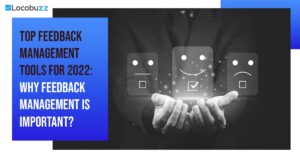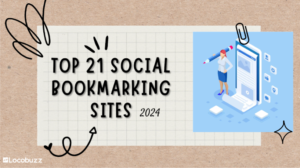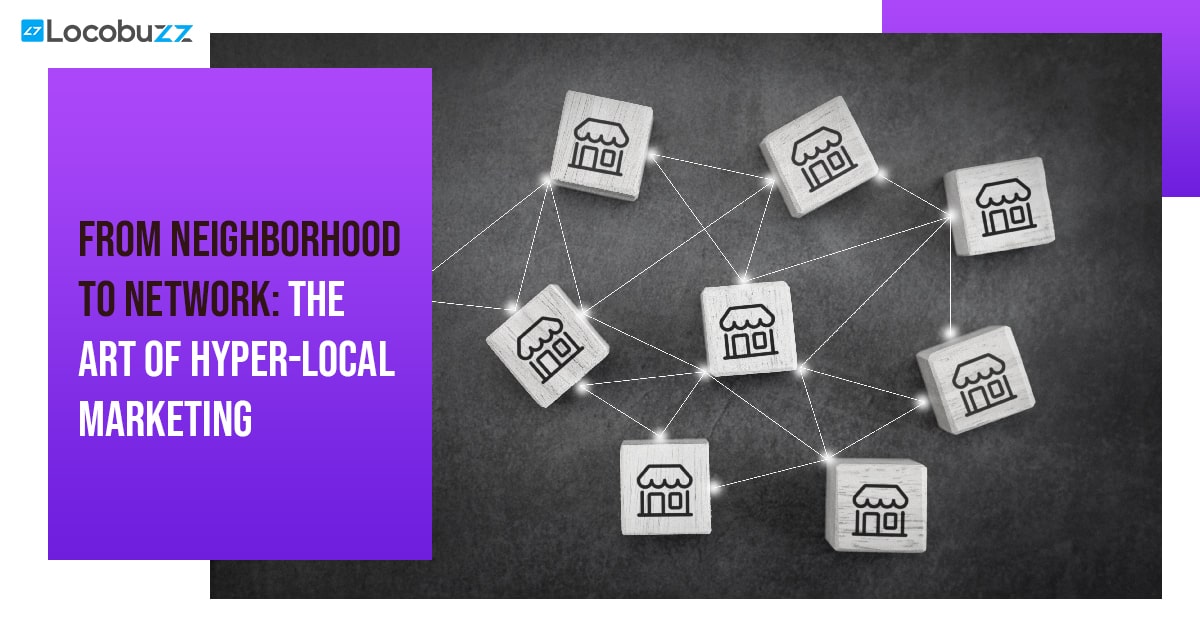The Top 20 Best Sentiment Analysis Tools For 2024
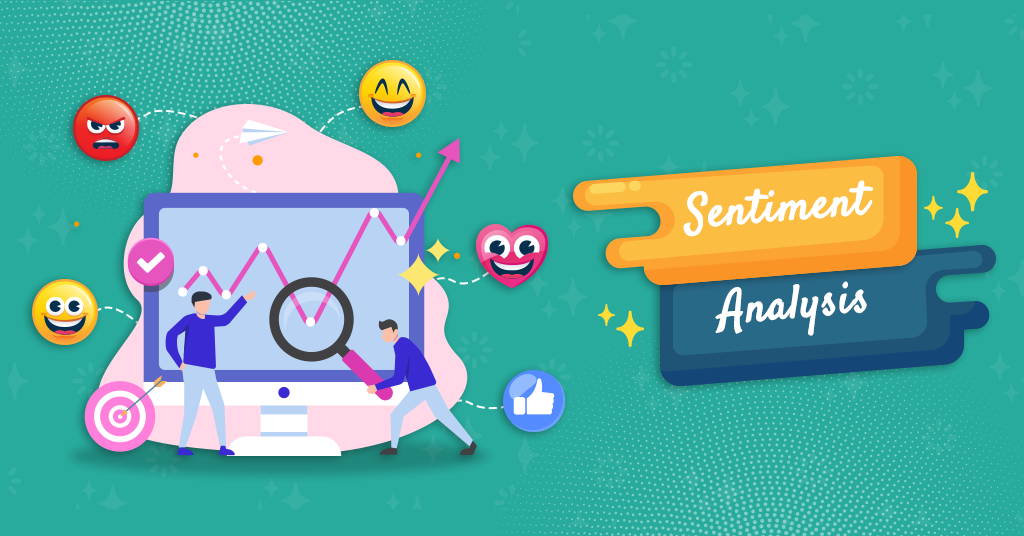
Sentiment analysis tools are vital for businesses striving to become customer-centric and enhance their marketing strategies. These tools analyze millions of online interactions across social media platforms, providing invaluable insights into public sentiment towards brands. Understanding customer emotions behind social media engagements is crucial in identifying a brand’s strengths and weaknesses.
As of 2024, the sophistication of sentiment analysis tools has significantly increased, making it easier for businesses to decipher the tone and sentiment behind every like, share, and comment. This evolution in technology not only helps in capturing audience feedback but also assists in fine-tuning a brand’s unique voice in a competitive market.
In this concise overview, we explore the top twenty sentiment analysis tools of 2024, highlighting their innovative features and how they can revolutionize your business’s approach to customer interaction and understanding. Each tool offers unique capabilities that can significantly enhance your understanding of customer sentiment, shaping a more effective and informed marketing strategy.
Table of Contents
20 best sentiment analysis tools
There are variety of sentiment analysis tools available and all are different. Some are much more user-friendly than others, whereas others require a deep understanding in data science. Let’s take a look at the best tools available for 2024.
1. Locobuzz
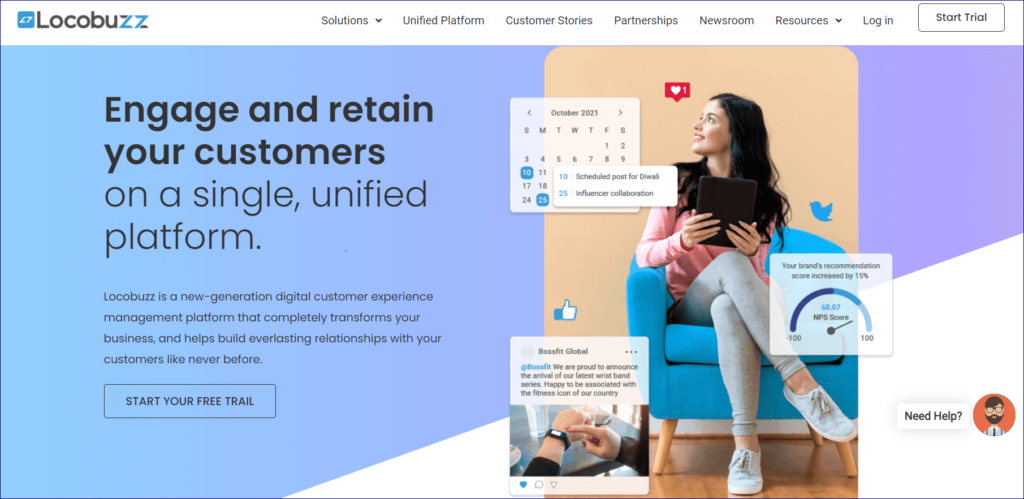
| Name | Locobuzz |
| Type | Sentiment analysis tool |
| Price | – |
| Free Trial | |
| Social Networks Supported | Facebook, LinkedIn, Twitter, Quora, Glassdoor |
Locobuzz is a modern customer experience and engagement platform that incorporates various tools, including sentiment analysis, to help businesses understand and interact with their customers. Sentiment analysis, in particular, is a critical component of Locobuzz’s offerings. Here’s a more detailed look at how sentiment analysis works within Locobuzz:
Overview of Sentiment Analysis in Locobuzz
Data Aggregation: Locobuzz collects data from a wide range of sources, including social media platforms, online forums, blogs, and other digital channels where customers might express their opinions about a brand or product.
Natural Language Processing (NLP): The platform uses advanced NLP techniques to analyze the text. This process involves understanding the context, language nuances, slang, and even emojis to accurately gauge the sentiment behind a message.
Sentiment Classification: The core of sentiment analysis lies in classifying the gathered data into different sentiment categories, typically positive, negative, and neutral. This classification helps businesses understand the general sentiment of their audience towards their brand or products.
Real-Time Analysis: One of the strengths of Locobuzz is its ability to perform real-time sentiment analysis. This feature enables brands to quickly identify and respond to changing customer sentiments, manage crises, or capitalize on positive buzz.
Trend Analysis and Reporting: Locobuzz not only provides snapshot views of sentiment but also tracks changes over time. This helps in identifying trends, patterns, and shifts in consumer attitude, which can be crucial for long-term strategy and decision-making.
Integration with Engagement Tools: The sentiment analysis tool is integrated with other components of the Locobuzz platform. This integration allows for seamless transition from analysis to action, enabling businesses to engage with customers based on the insights derived from the sentiment analysis.
2. Brandwatch
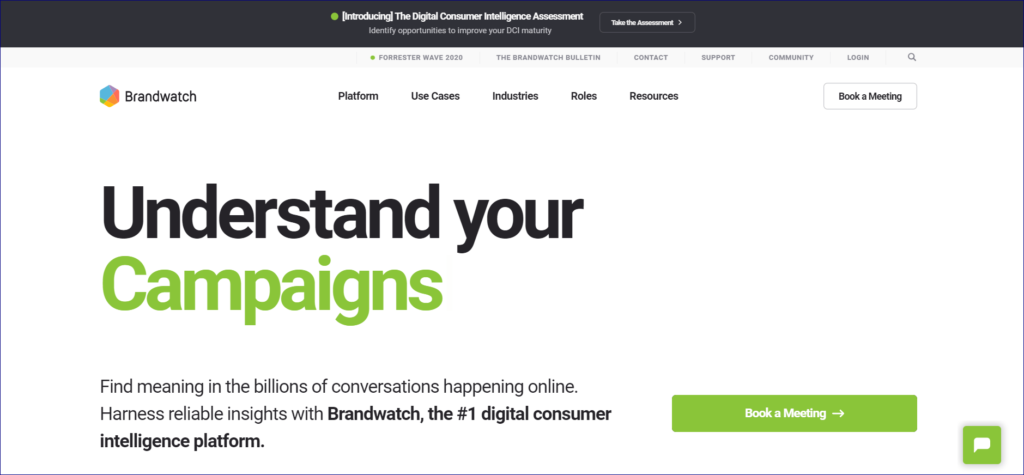
| Name | Brandwatch |
| Type | Sentiment analysis tool |
| Price | – |
| Free Trial | 15 days |
| Social Networks Supported | Facebook, LinkedIn, Twitter, etc. |
Brandwatch is among the biggest names when it comes to sentiment analysis tools and domain. It features several resources to monitor all different aspects of social media.
In today’s time, several businesses use this tool to monitor and understand the voice of the customer as it helps to detect fluctuations in sentiment 24/7. Apart from this, Brandwatch also has a unique feature called “image insights” that lets you go beyond text data and help you track all logos shared across millions of online sources.
With this one of the most popular social media free sentiment analysis tools, you’ll be able to see where your brand’s images are appearing and how they are performing across your target audience. Also, you can monitor and understand your customer’s perception by tracking positive, negative, or angry emotions.
If you’re really looking to get higher ROI, you can’t ignore this sentiment analysis tool to outshine your business.
3. Awario

Awario is another helpful tool to track sentiment analysis on several social media platforms. It works best for those enthusiasts who like to play with figures and numbers.
This sentiment analysis tool sorts its analysis into three categories: positive, negative, and neutral. You can easily gather any sort of data about your business by detecting the sentiment of brand voice and mentions in real-time.
If you also want to track specific keywords, you can take the help of this tool to monitor the sentiment of these keywords. The dashboard of Awario is interactive and breaks down the sentiment data by topic, brand, keyword and even shows negative mentions or feedback against your competitors.
Awario is one of the most useful sentiment analysis tools to track sentiment analysis that covers almost all the major social media platforms, blogs, forums, and the web.
4. Talkwalker
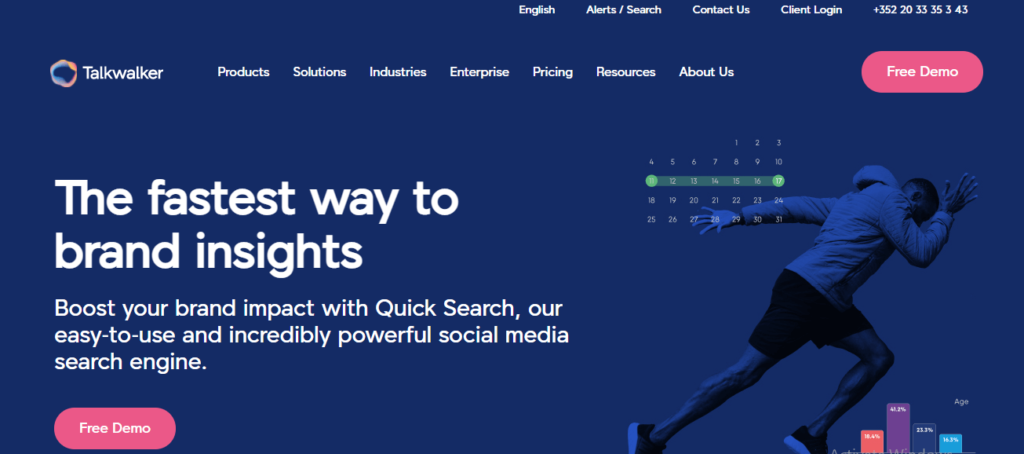
| Name | Talkwalker |
| Type | Sentiment analysis tool |
| Price | Starting at $800 per month |
| Free Trial | 14 days |
| Social Networks Supported | Facebook, Instagram, Twitter, etc. |
Talkwalker is another sentiment analysis tool that keeps a check and analyzes social media data. It has a “Quick Search” feature that looks at your comments, mentions, engagements, and other relevant data on how all your customers respond to your social media activity.
Unlike other free sentiment analysis tools, the best part about Talkwalker is it can perform sentiment analysis in 25 different languages. This tool uses AI to analyze the tone of all individual mentions gathered from several social media platforms and blogs, and forums.
It even allows you to track all customer trends and see which features are drawing customers’ attention and which features are turning them away.
5. Clarabridge
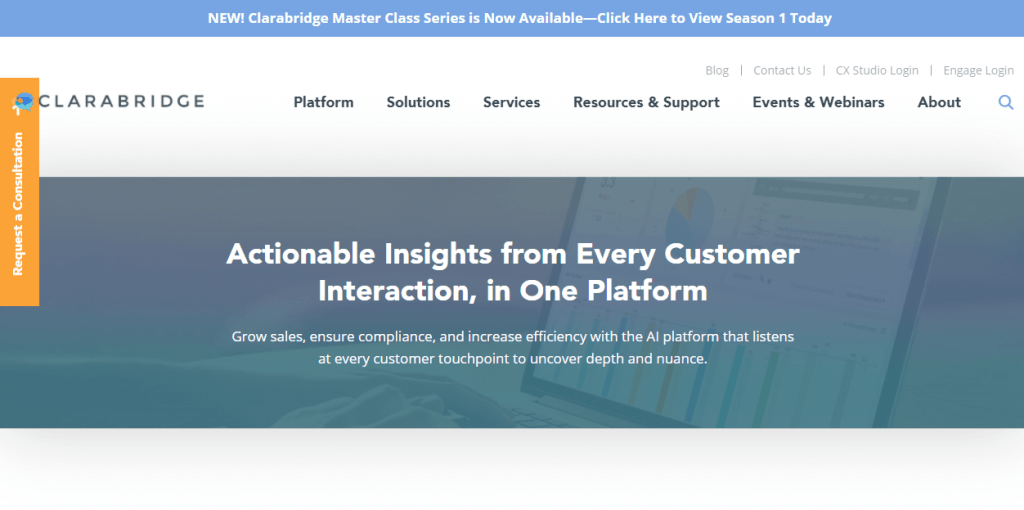
| Name | Clarabridge |
| Type | Sentiment analysis tool |
| Price | – |
| Free Trial | 14 days |
| Social Networks Supported | Facebook, Instagram, Twitter, etc. |
Clarabridge is a customer experience management platform that lets you track customers’ sentiment both on social media and on your customer service platforms.
Clarabridge offers tool that deliver essential metrics about the feelings of all your customers and provides relevant data in all types such as emails, chats, surveys, and more. This tool also focuses on Speech Analytics which means it performs sentiment analysis on audio data that helps the team manage calls and provide better support.
Unlike other sentiment analysis tools , it comes with an 11-point scale that measures the most accurate sentiments based on the people’s words and grammar.
6. Lexalytics
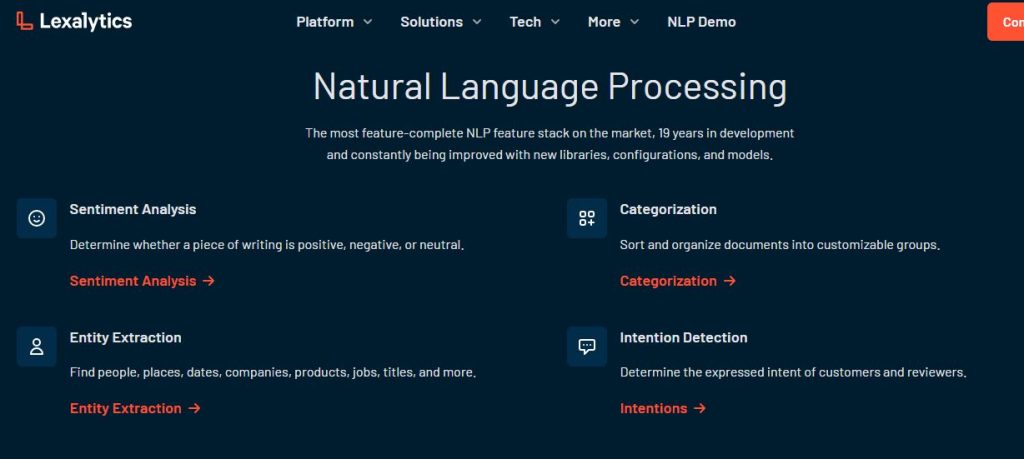
| Name | Lexalytics |
| Type | Sentiment analysis tool |
| Price | – |
| Free Trial | 7 days |
| Social Networks Supported | Facebook, YouTube, Twitter, etc. |
Lexalytics can be used for all types of business purposes. After sourcing data from several social media platforms, reviews and surveys, it uses natural language processing to determine whether text is positive, neutral, or negative.
You can integrate the tool with other software via its Cloud API, or use it as an add-on to your Excel sheets. You can customize the tool to your liking, but you will need basic data analysis skills in order to do so.
To perform accurate text analysis, it breaks down the response text into syntax or semantics. Lexalytics, like other sentiment analysis tools visualizes the data results in an easily readable format for easy analysis.
7. AYLIEN
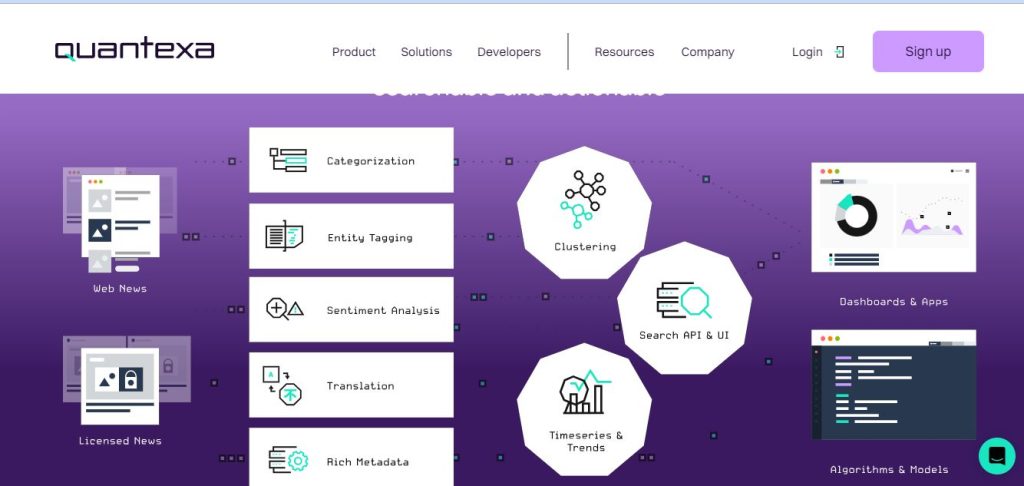
8. MonkeyLearn
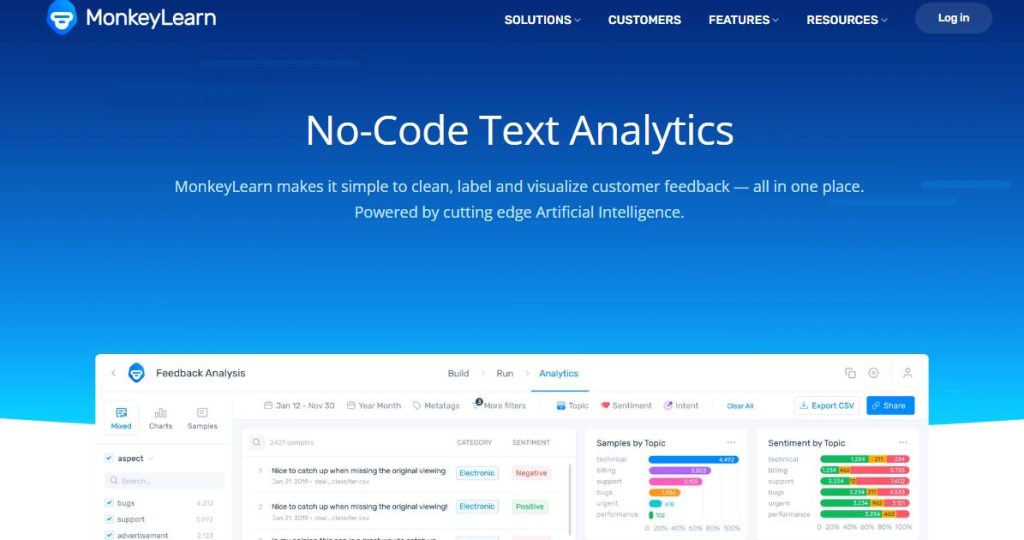
9. IBM Watson
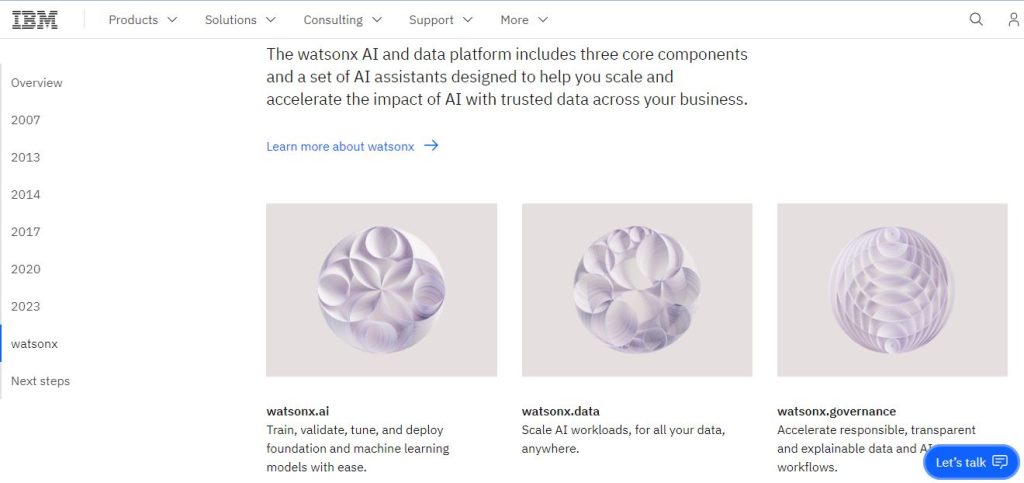
10. Google Cloud NLP
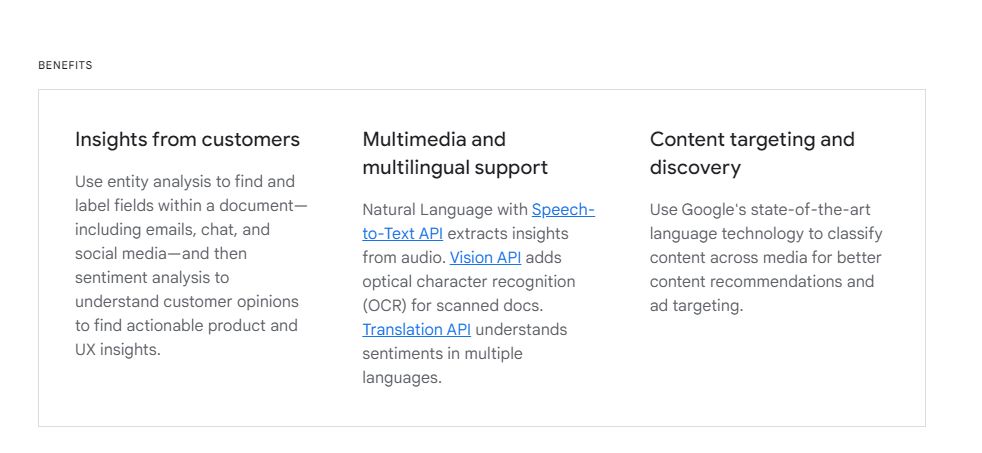
11. Sentiment140
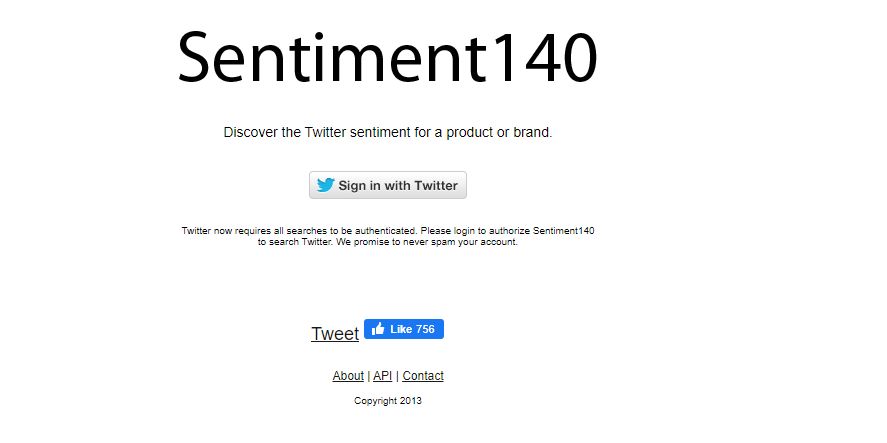
12. Critical Mention
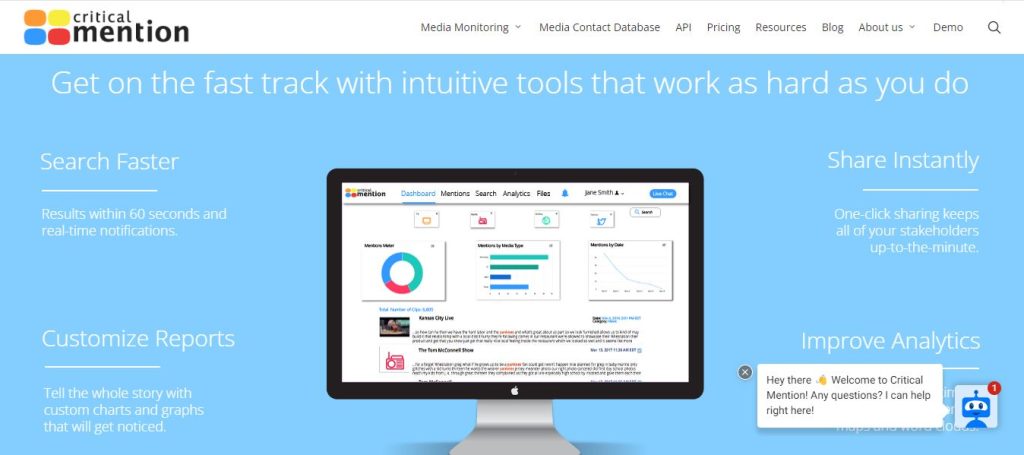
13. RapidMiner
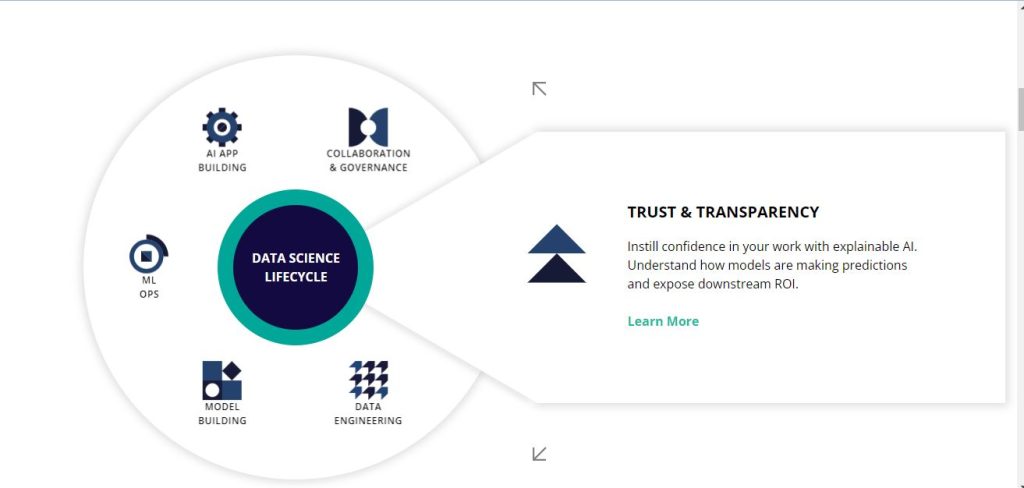
RapidMiner is a data science platform that offers advanced analytics through a unified environment. It combines data preparation, machine learning, and model deployment, making it a comprehensive solution for data scientists and analysts.
RapidMiner is widely recognized for its ability to handle a wide range of data science tasks, including sentiment analysis. The platform supports the entire data science lifecycle from data preparation to model validation and deployment. With its visual workflow designer and extensive library of pre-built models and algorithms, RapidMiner is accessible to both experienced data scientists and those new to data analytics.
Its sentiment analysis capabilities are part of a broader suite of text mining features, which can be used to extract meaningful insights from text data such as customer feedback, social media conversations, and online reviews.
14. MeaningCloud
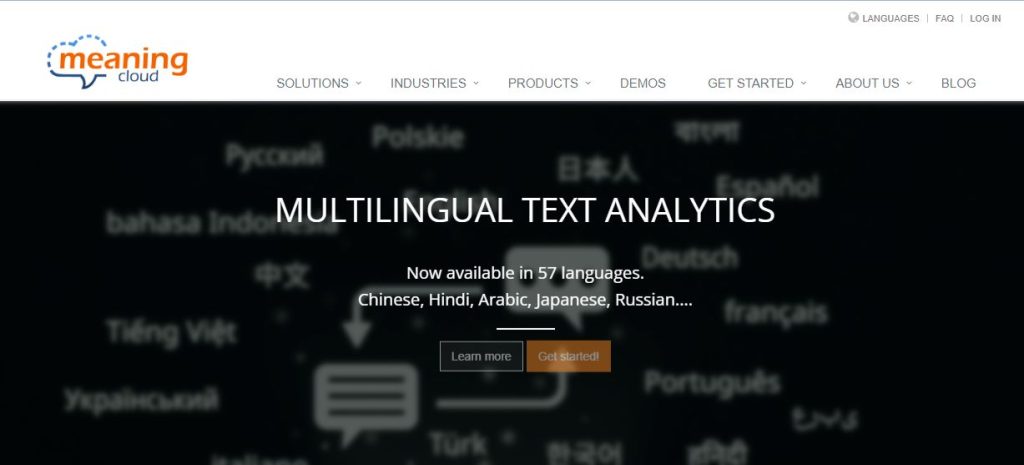
MeaningCloud is a cloud-based text analytics service that provides solutions for sentiment analysis, text classification, and entity extraction. It is designed to help businesses extract meaningful insights from unstructured text data. The platform utilizes advanced natural language processing (NLP) techniques to analyze content from various sources, including social media, customer feedback, and documents.
MeaningCloud’s sentiment analysis feature is capable of identifying not just the polarity (positive, negative, neutral) of sentiments but also the subjectivity and passion in the text. It supports multiple languages, making it a versatile tool for global businesses. The platform is user-friendly and offers various integration options, including a robust API, Excel add-in, and plug-ins for popular platforms.
15. SAS Text Miner

SAS Text Miner is a sophisticated tool designed for advanced statistical analysis of text data. It’s part of the larger SAS software ecosystem, a leader in business analytics. This tool is specifically tailored for extracting valuable insights from large volumes of unstructured text data. It employs a variety of techniques including natural language processing, machine learning, and predictive modeling.
SAS Text Miner is capable of handling complex text analysis tasks such as sentiment analysis, text clustering, topic discovery, and trend analysis. It’s particularly well-suited for organizations that deal with large datasets and require deep, statistical-based analysis. The tool integrates seamlessly with other SAS analytics platforms, providing a comprehensive solution for data-driven decision-making.
16. Vader Sentiment
Vader Sentiment, short for Valence Aware Dictionary and sEntiment Reasoner, is an open-source sentiment analysis tool particularly adept at handling social media text, informal language, slang, and emoticons. It’s built specifically for sentiment analysis and is popular among data scientists and researchers.
Vader Sentiment uses a combination of qualitative and quantitative methods to determine the sentiment of a text, categorizing it as positive, negative, or neutral. It’s known for its ease of use and efficiency in processing social media content. Being a Python library, it integrates well with other Python-based data analysis tools, making it a valuable asset for projects involving social media analysis.
17. Brand24
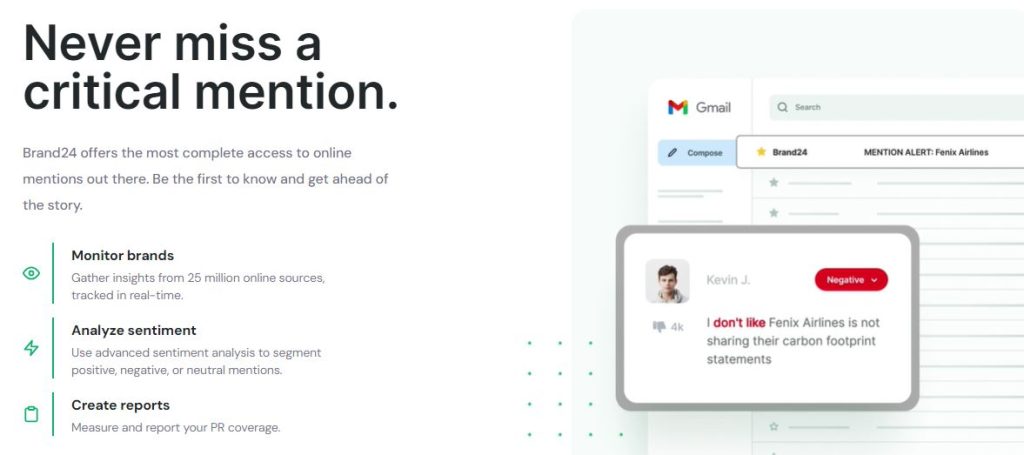
Brand24 is a digital consumer intelligence platform that offers real-time social media monitoring and analytics. It allows businesses to track and engage in online conversations about their brand, products, and industry. Brand24 is particularly useful for sentiment analysis, reputation management, and measuring the effectiveness of marketing campaigns.
The tool provides insights into how a brand is perceived online, helping businesses respond quickly to customer feedback and market trends. It features functionalities like keyword tracking, mention analytics, and sentiment analysis, making it a comprehensive tool for businesses keen on maintaining a strong online presence.
18. NetOwl
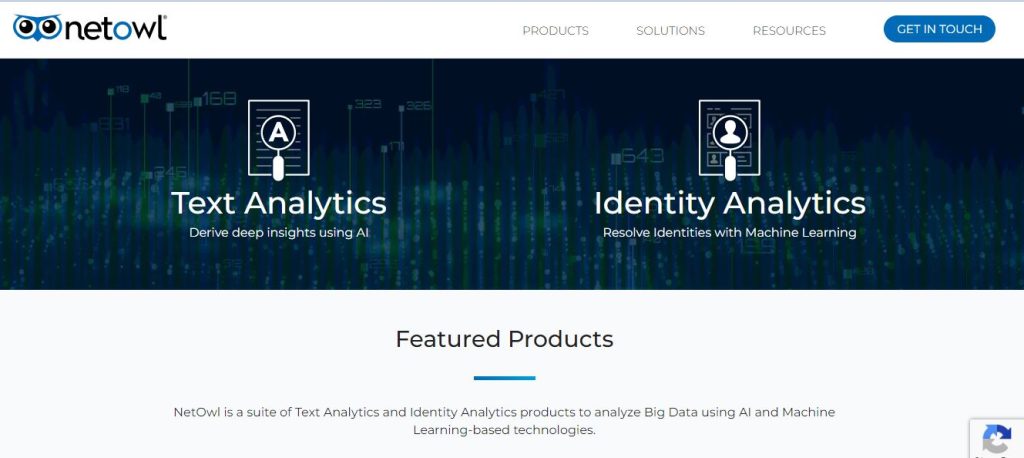
NetOwl is a text analytics product suite offering a range of solutions including entity extraction, link analysis, sentiment analysis, and language identification. It is particularly known for its ability to handle large-scale text analytics projects and is widely used in various sectors like government, finance, and healthcare.
NetOwl employs advanced NLP techniques to extract meaningful insights from unstructured text data. One of its standout features is its multilingual capabilities, making it adept at processing and analyzing text in various languages. NetOwl’s sentiment analysis tool is designed to identify and categorize emotions and opinions in text, making it a valuable resource for understanding customer sentiments, market trends, and public opinions.
19. Clarabridge
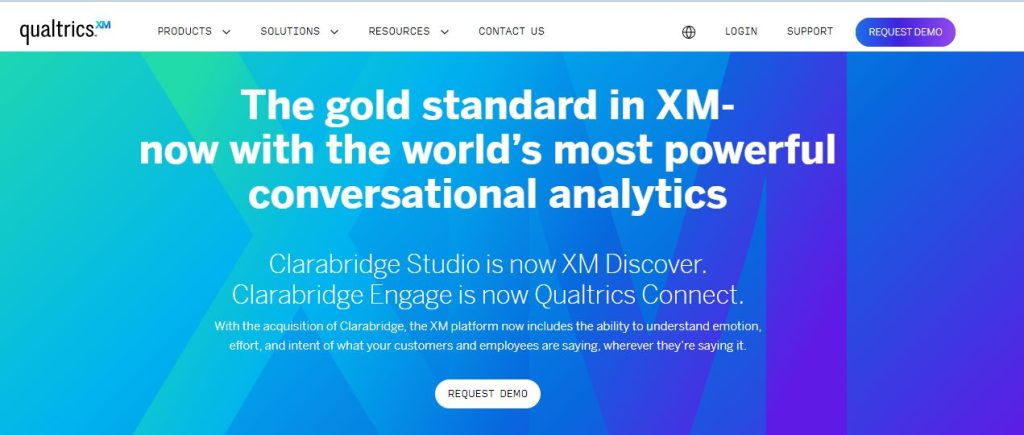
Clarabridge is a robust choice for enterprises focusing on comprehensive customer experience management. Its advanced capabilities in sentiment analysis and multichannel feedback interpretation make it a valuable tool for businesses looking to deeply understand and improve customer interactions. However, its cost, complexity, and focus on customer experience might limit its appeal to smaller businesses or those with different analytical needs.
20. Sprinklr
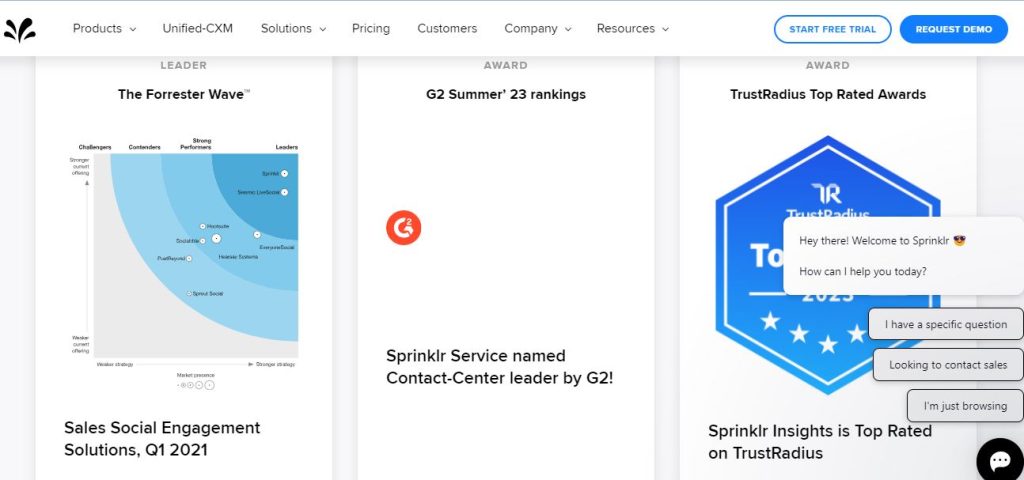
What are sentiment analysis tools?
Sentiment analysis is a process of text analysis that uses machine-learnings and natural language processings to understand if the tone or sentiment behind a piece of writing is negative, positive, or neutral. And, this process is conducted with the help of sentiment analysis tools.
Sentiment analysis tools perform the job of measuring people’s thoughts or feelings and help significantly to analyze brand mentions, customer feedback, or studying the responses to your recent posts.
A sentiment analysis tool is an AI software useful for companies that are active in engaging with their customers via live chat, social media and email where it becomes difficult to understand the sentiment or intent behind a message.
Reasons to use sentiment analysis tools | Benefits
- With the help of sentiment analysis tools you are able to understand and review the sentiment behind customers’ comments, you can determine how they feel about your brand. A negative or positive change in sentiment could be a sign of a failed product launch or a missed marketing campaign.
- It is possible to connect sentiment analysis tools with customer support software. This allows you to listen to customers in real-time, prioritize negative comments, create better strategies and improve brand reputation.
- Online opinions are not limited to consumers. Find influencers who are talking about products similar to yours. With sentiment analysis tools, you’ll be able to search for keywords related to your industry, to find potential brand advocates that are discussing topics related to your industry and product. Reach out to those who are talking positive and establish a relationship.
You can use sentiment analysis tools to quantify all of your unstructured data. Data visualization tools are available to turn text data into valuable customer insight. This will allow you to spot trends and patterns over time and identify customer pain points. It will also help you make data-based decisions that will increase brand recognition and propel your business forward.
What to look out for when choosing a sentiment analysis tool?
Various sentiment analysis tools offer diverse services to people and firms and if you require relevant digital consumer insights, your analysis tools must fulfil all your requirements as well.
- How does it analyze complicated expressions?
It is possible that only a couple of consumers will certainly speak in a well-defined means like “I am happy” or “I am angry”. They may claim something like ‘thanks to the solution I have actually received, I’m feeling much better than I was when I initially called’, or ‘the firm took too long to return to me’. You want to be sure that your evaluation tool handles these sort of complex expressions suitably and that its classification system makes up intricacies. - Can it manage different data sources?
The sentiment analysis tools must have the ability to process incoming data from lots of different data resources. This provides you the most effective summary of the brand views that are shared each day and also allows you evaluate your very own brand name reputation much more accurately. - Can it do real-time evaluation?
You need real-time speech analytics that can keep up with the speed of those conversations when the objective is to keep track of discussions as they’re occurring. Your analytics devices need to have the ability to provide those real-time understandings to encourage your agents and managers to give a constantly exceptional consumer experience.
How do Sentiment Analysis Tools Work?
These tools track and monitor customer reviews, chat support conversations, survey responses and customer feedback on various online portals. The tools then analyze the data and identify the words in the feedback.
It will identify words that express emotions or intents and create a word cloud to help you analyze them. They assign them either a negative, positive, or neutral tag so that you understand which customer inquiries to prioritize accordingly.
The sentiment analysis tools display a variety of emotions in the data.
Companies can then understand their customer experience and identify areas that need improvement. The sentiment analysis can be used to identify detractors and promoters, and make unhappy customers happy again.
Conclusion
These are the 6 best paid and free sentiment analysis tools for 2024 that have their pros and cons. Some have extraordinary features, while some are simple and easy to use.
Locobuzz is the best sentiment analysis tool in 2024 that you can use for your business. It has a simple and interactive dashboard with powerful AI tools that delivers real-time understanding by capturing the latest social media trends.
However, you can use several different sentiment analysis tools, but the above given tools will fit perfectly for any business size and type.
Frequently asked questions
Sentiment analysis is a type of text research which involves using a combination of statistics, natural-language processing (NLP) and machine learning to extract subjective information from text files. It attempts to examine the feelings, thoughts and judgments of reviewers about a topic, an event, or company’s activities, as well as other topics.
The majority of providers use four methods including keyword scoring, calculation based upon predefined categories, humans like us and AI-powered sentiment analysis tools.
Brands employ sentiment analysis tools to measure and track the views of their customers as well as attitudes towards their products, brands or services, and campaigns, and products. Monitoring social media’s sentiment is a great source of data that provides essential digital consumer insights.
The sentiment analysis tools are useful for testing business KPIs, improving marketing campaigns and product messaging, generating leads, preventing a brand reputation crisis, researching product decisions and improving customer experience.
Locobuzz is one of the best sentiment analysis tools in the market. You will be able to get a real-time understanding of your customers, capture the latest trends and using its social listening feature will help you redefine your customer service.
Free sentiment analysis tools can be useful to some extent as they may have limited features compared to paid sentiment analysis tools. Other best tools like Locobuzz, Awario & Talkwalker are providing free trials which is worth to try.


